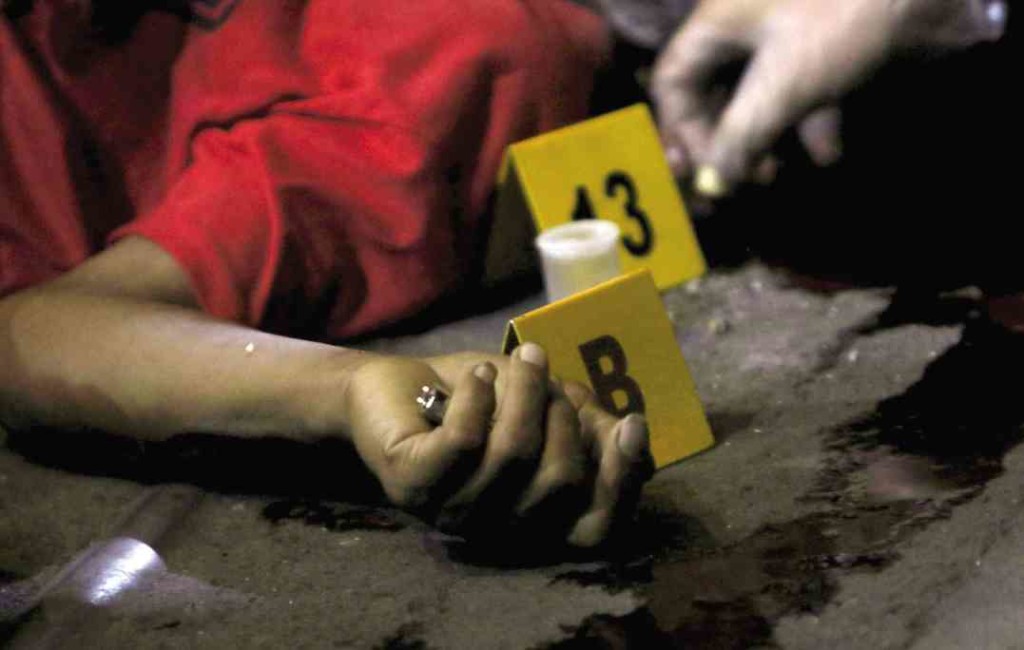
Masked gunmen killed this drug suspect, known only as Melvin, in front of Virgo Club on Commonwealth Avenue, Quezon City, in March 2017. —(File photo by RICHARD A. REYES / Philippine Daily Inquirer)
MANILA, Philippines — Any foreign agency will investigate drug war killings in the Philippines may be “unnecessary,” Philippine National Police (PNP) said on Saturday.
“The PNP submits to the better judgment and wisdom of higher authorities,” Col. Bernard Banac, PNP spokesperson, said in a statement sent to reporters. “At best we can only express the opinion that any foreign body that will conduct an investigation here of local crime incidents may be unnecessary.”
Banac made the comment after 28 states recently appealed to the United Nations Human Rights Council (UNHRC) to address the human rights situation in the Philippines.
READ: 28 states urge UN to report on human rights situation in PH
“The Philippines has a fully functional criminal justice system that has complete jurisdiction over such domestic legal questions that need to be resolved through a formal judicial process,” Banac said.
But Banac said the matter would best be addressed by the executive department.
“Matters involving foreign diplomatic policy are beyond the authority of the police to tread on,” he said.
On Friday, Malacañang dismissed the fresh call on the UNHRC to investigate the deaths in President Rodrigo Duterte’s campaign against illegal drugs.
“We already made our stand. Any move that will interfere with the sovereignty of this country, the management of this country by a sitting President elected overwhelmingly by the people, to our mind is an interference with our sovereignty,” presidential spokesperson Salvador Panelo said.
READ
Malacañang rejects UN rights investigation of drug killings
Palace: UN probe on Duterte drug war is clearly an ‘interference’
On Thursday, Iceland submitted a draft resolution, backed by 28 nations, to the High Commissioner on Human Rights Michelle Bachelet to take all necessary measures to prevent extrajudicial killings in the Philippines.
The resolution also asked the High Commissioner to conduct impartial investigations into the drug-related killings and to hold the perpetrators of these killings accountable in accordance with international standards and due process.
(Editor: Alexander T. Magno)